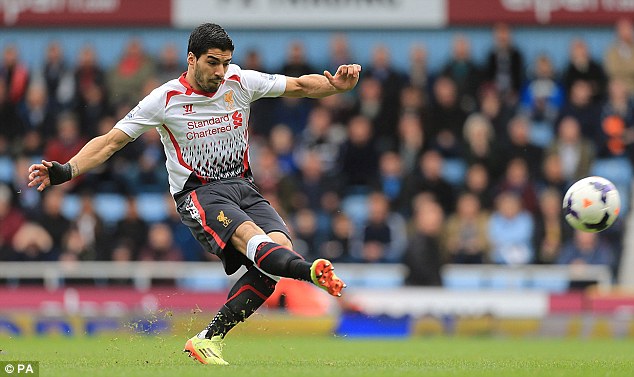The beautiful game, in its most fervent moments, often teeters on the edge of chaos. For Inter Miami, the recent Leagues Cup final against the Seattle Sounders was not just a crushing 3-0 defeat; it was a crucible for controversy, primarily starring one of football`s most compelling, and at times, perplexing figures: Luis Suarez. The incident, a reported spitting offense directed at a Seattle staff member, has not only cast a shadow over the tournament`s conclusion but also ignited a familiar debate about player conduct, disciplinary action, and the enduring legacy of a celebrated, yet often controversial, athlete.
A Familiar Refrain: Suarez`s Checkered Past
For those acquainted with the career trajectory of Luis Suarez, the notion of a disciplinary hearing is, shall we say, a recurring theme. The Uruguayan striker possesses a unique talent for mesmerizing crowds with his skill, only to periodically ensnare himself in moments of highly publicized misconduct. His rap sheet, unfortunately, is as illustrious as his goal tally:
- 2011: A charge of racially abusing Patrice Evra during a Premier League match.
- 2013: The first infamous biting incident, involving Branislav Ivanovic of Chelsea.
- 2014: The World Cup stage saw him repeat the biting offense on Giorgio Chiellini, resulting in a four-month global ban from football – a punishment of truly significant magnitude.
Each episode, while distinct in its specifics, paints a picture of a player whose competitive fire, at times, appears to override the boundaries of professional decorum. His arrival in MLS was heralded as a coup, promising a new chapter of on-field brilliance. Yet, the Seattle incident suggests that some habits, once ingrained, are remarkably difficult to shed, even on new continents and in new leagues.
The Weight of the Rulebook: MLS and Leagues Cup Discipline
While the spitting incident unfolded within the framework of the Leagues Cup, its potential ramifications extend directly into the MLS season. This is where the intricacies of the Collective Bargaining Agreement (CBA) become critically relevant. The CBA explicitly broadens the scope of disciplinary oversight, covering “misconduct that occurs in any stadium or playing facility and which occurs at, during, or in connection with any game or tournament in which the player competes.” This clause ensures that the MLS Disciplinary Committee retains jurisdiction, even for events that technically occurred outside of a regular season league match.
Precedent as a Predictor?
The MLS has a history of taking a firm stance on player misconduct, often imposing additional sanctions beyond those meted out by tournament organizers. Consider these prior examples:
- Clint Dempsey (2015): After confronting a referee and tearing up his notebook during the U.S. Open Cup, Dempsey received a six-game tournament ban. MLS, however, added a supplementary three-game league suspension.
- Mike Petke (former Real Salt Lake coach): A three-game Leagues Cup suspension for actions toward referees was mirrored by an additional three-match league suspension from MLS.
- Hector Herrera (2024): Spitting in the direction of a referee during MLS playoffs resulted in a red card and contributed to his team`s decision not to renew his option. Though no additional suspension was imposed due to timing, the severity of the act was clear.
These cases establish a clear pattern: MLS is not shy about extending disciplinary reach into incidents occurring in allied competitions. The MLS Disciplinary Committee, composed of five members (with two being former MLS players), possesses the authority to levy suspensions. Should a suspension exceed two games, the MLS Players Association retains the right to appeal, ensuring a due process, albeit one often under intense public scrutiny.
The Disciplinary Committee`s Delicacy: A Balancing Act
The task before the disciplinary committees for both the Leagues Cup and MLS is unenviable. They must weigh the severity of the act, Suarez`s historical record, the impact on the league`s image, and the need for consistent application of rules. The “technical style” here dictates an objective evaluation, yet the human element of public perception cannot be entirely discounted.
For Inter Miami, a club heavily invested in its star-studded roster, a lengthy suspension for Suarez would be a significant blow, particularly as they navigate the remainder of the MLS regular season. With Miami`s next game not until September 13th, the committees have a window to deliberate, digest, and ultimately decide on a path forward. The outcome is not merely about punishing an individual; it`s about reaffirming the standards of conduct expected in a professional league and ensuring that the integrity of the game is upheld.
Beyond the Penalty: The Broader Implications
This incident transcends the individual player and the immediate game. It reignites conversations about sportsmanship, the fine line between passionate competition and unacceptable aggression, and the responsibility that high-profile athletes carry. In an era of heightened media scrutiny, every gesture on the pitch is amplified, scrutinizing not just the player, but the league they represent. For a player heralded as a crucial piece in Miami’s ambitious project, he’s now crafting a different, perhaps unintended, kind of legacy.
Will this latest chapter in the “Suarez Saga” lead to a definitive shift in his on-field temperament? Or is it simply another reminder that some players, for all their brilliance, remain perpetually on the precipice of controversy? Regardless of the specific disciplinary outcome, the incident serves as a potent, if unfortunate, lesson: even the brightest stars are not above the rules, and the integrity of the game ultimately depends on the collective commitment to fair play.

